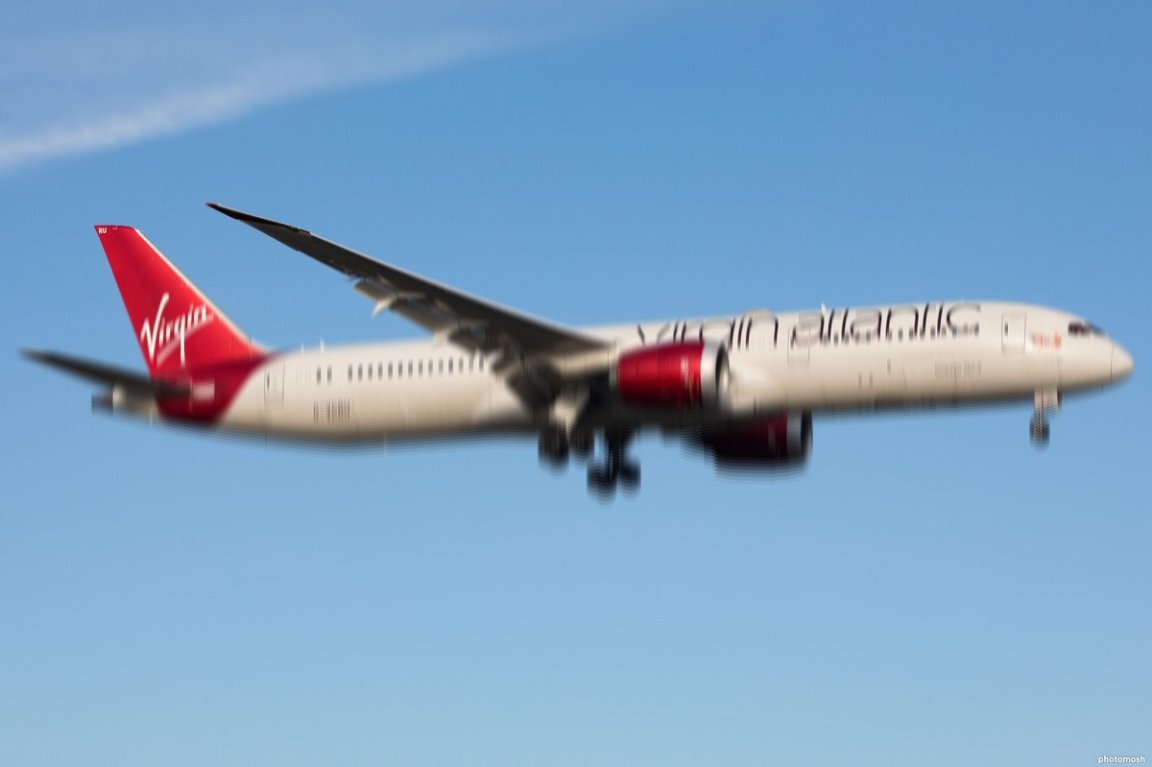
Jet Set
A massive jet stream formed over the mid-Atlantic region this past weekend, with a fascinating effect: pushing certain eastbound commercial flights faster than the speed of sound.
As the Washington Post reports, one Virgin Atlantic flight reached a ground speed of 802 miles per hour — faster than the 767 mph measurement of the speed of sound — as it jetted from Washington Dulles International Airport to London’s Heathrow Airport on Saturday, landing 45 minutes ahead of schedule.
All told, three commercial jetliners were swept up by the fearsome jet stream, which clocked in at a blistering 265 mph compared to the average jet stream speed of around 110 mph.
Because the Virgin Atlantic flight and two others like it, including one from Newark Airport in New Jersey to Lisbon, Portugal that reached a ground speed of 835 mph, were within the jet stream’s flow, they didn’t break the sound barrier, WaPo points out.
Important to note: though they were traveling over the speed of sound relative to the ground, the planes didn’t actually break the sound barrier, since they weren’t moving 767 mph faster than the air around them.
Weather Watchers
This jet stream occurred, as the report indicates, as a result of super-cold temperatures in the Northeast and much warmer air to the South. In Maine, for instance, temperatures bottomed out in the single digits on Saturday at 7 PM, whereas South Florida experienced a balmy mid-70s that same evening.
This crosswind effect also, WaPo points out, seemed to sweep away a lot of the snow expected to hit the DC area from the weather system that blanketed states to its north twice in one week.
In a post on X-formerly-Twitter, the National Weather Service’s Baltimore-Washington update account said that the winds were the second-highest ever observed since records began being kept in the mid-20th century.
“For those flying eastbound in this jet,” the NWS account warned, “there will be quite a tail wind.”
Though there haven’t been reports yet about any problems experienced by flights flying west during this eastern slipstream, common aviation knowledge dictates that flying against jet streams can result in longer flight times, increased fuel consumption, and turbulence.
Indeed, as one weather Twitter participant pointed out, the jet stream may not have been celebratory for everyone.
“Great for flight if it’s at your tail,” meteorologist Lisa Green tweeted. “Not so great, otherwise!”
More on planes: Plane Passengers Horrified as Maggots Rain Down from Luggage Compartment